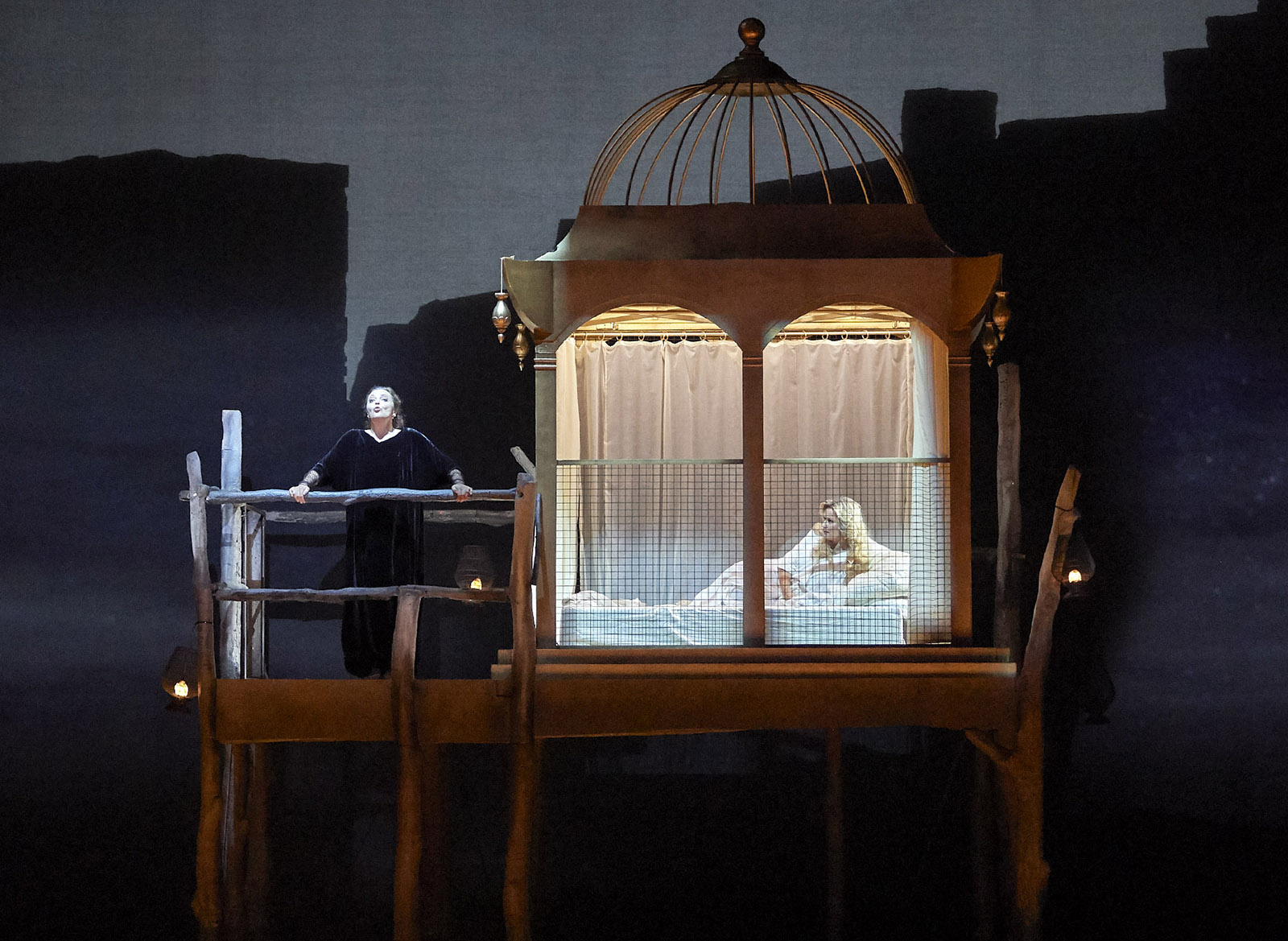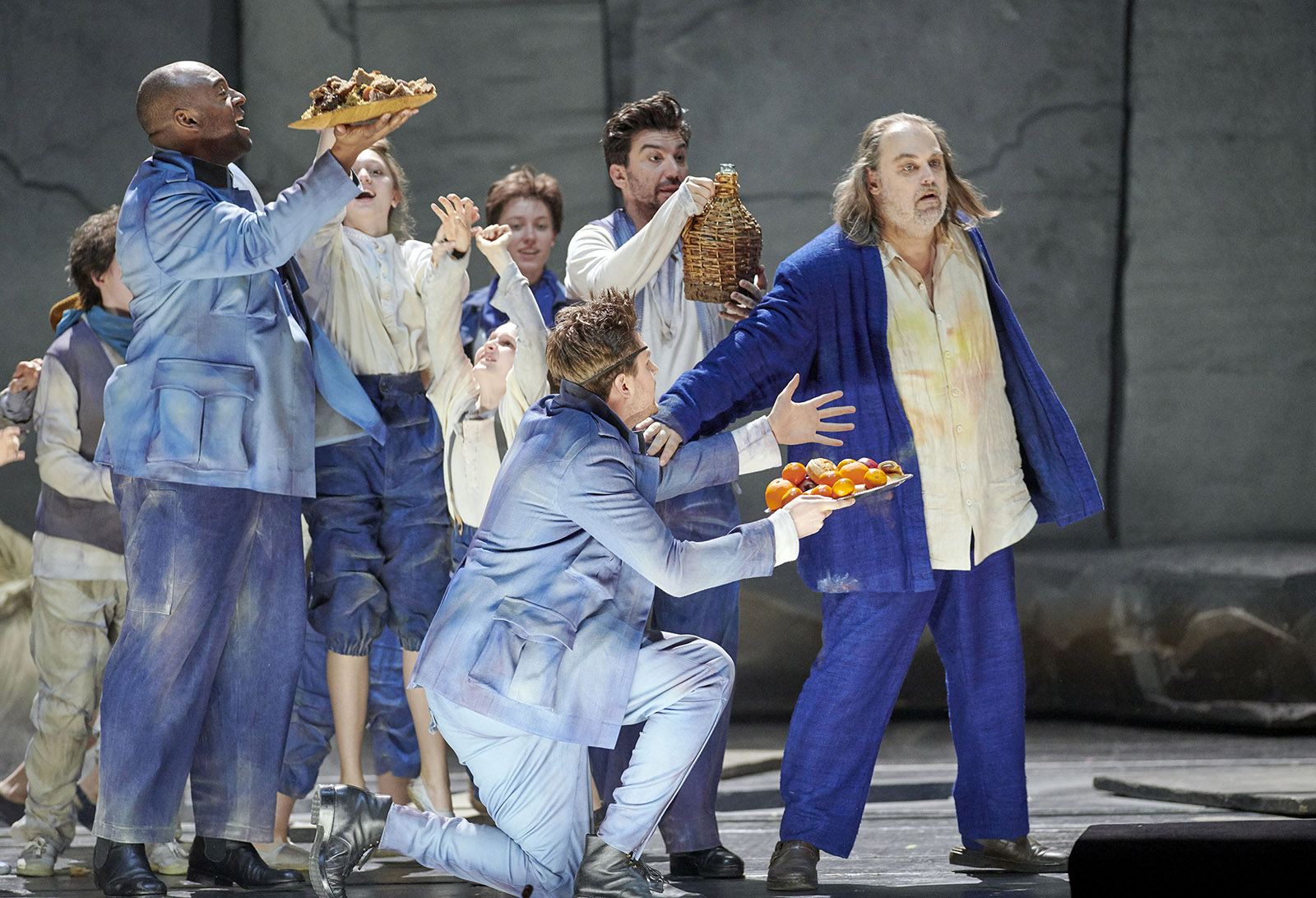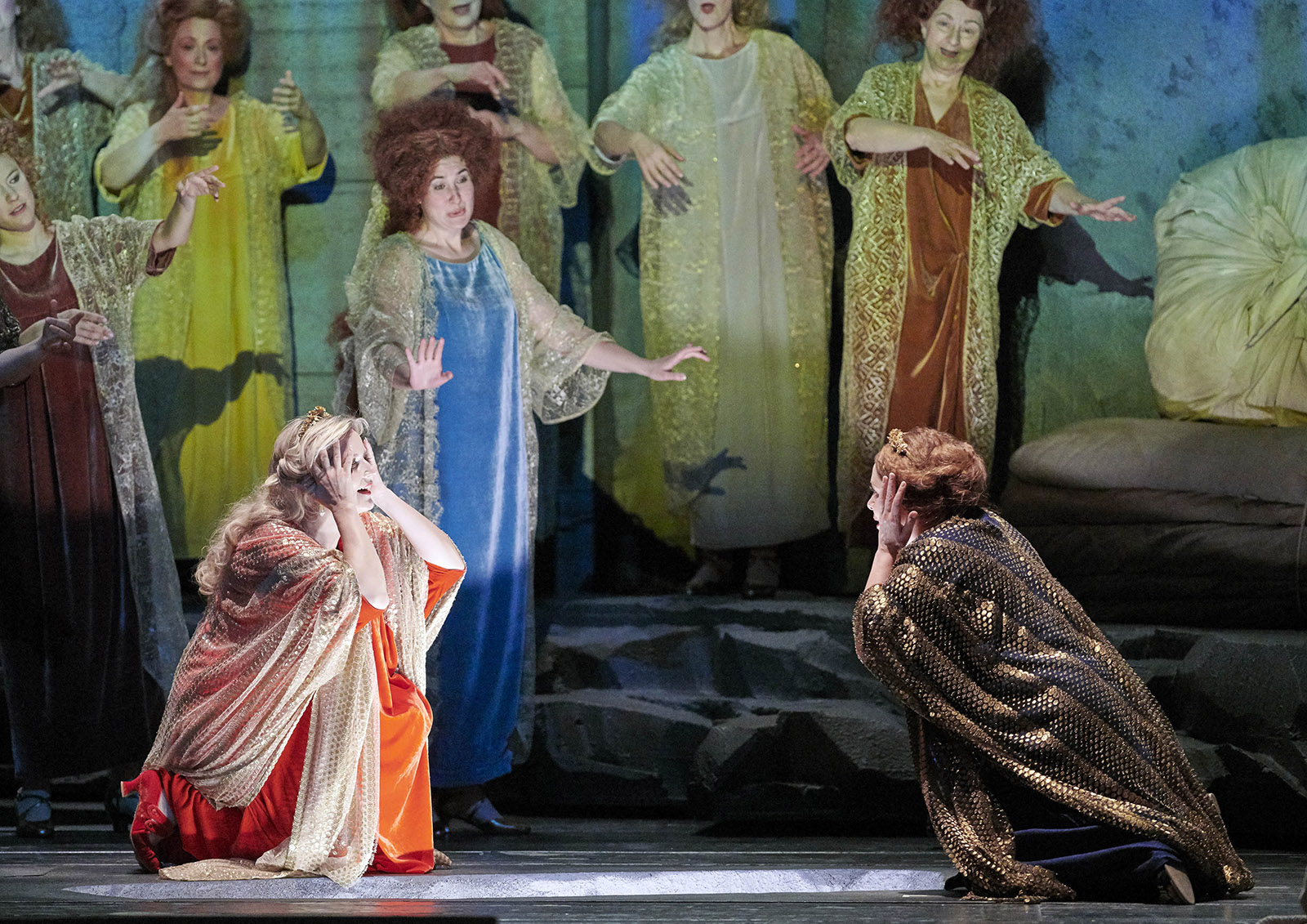On May 17, a video surfaced in Europe showing the vice-chancellor of Austria, Heinz-Christian Strache, leader of the populist, extreme-right Austrian Freedom Party, negotiating in 2017 for Russian investment of vast sums of money to control the Austrian media and promote his own party in the elections of that year. Strache had to resign from the government on May 18; just over a week later, Austria’s chancellor, the thirty-two-year-old boy wonder of European conservatism Sebastian Kurz, who had dangerously staked his political capital on a coalition with the extreme right, followed suit after a parliamentary vote of no-confidence. This was a scenario that other countries may eventually have to face: what to do when it turns out that leading politicians in your government have been eagerly hiring themselves out to Russia.
Two days before the Austrian government collapsed on May 27, a long-planned celebration took place in the capital city to mark the 150th anniversary of the opening of the Vienna Opera House on May 25, 1869. There is probably no city on earth that revolves around its opera house as Vienna does. The writer Stefan Zweig, remembering his childhood in nineteenth-century Vienna, claimed that “The minister-president or the richest magnate could walk the streets of Vienna without anyone’s turning around, but a court actor or an opera singer was recognized by every salesgirl or cabdriver.” In 1869, the opera house’s magnificent building anchored the newly developed Ringstrasse that circled the old city under the reign of Habsburg Emperor Franz Joseph, supreme patron of what was then known as the Court Opera.
In 1919, the Vienna Opera House renewed its cultural mission in the aftermath of World War I. It was no longer a court opera, since the empire had been abolished and the last emperor had gone into exile. Suddenly the capital of a small Danubian republic rather than a vast Central European empire, Vienna presented a brand new opera by the most famous German composer of the age, working with the most celebrated Viennese poet as his librettist: Richard Strauss and Hugo von Hofmannsthal, creating together Die Frau ohne Schatten (The Woman Without a Shadow). This year, besides celebrating the 150th anniversary of the opera house, the Wiener Staatsoper also marked the centenary of that opera with a starry new production. And so, in May, Strauss and Hofmannsthal’s lavish operatic fairy tale of political and social renewal opened—just as an unprecedented political crisis threatened to subvert the legitimacy of the hundred-year-old Austrian republic.
*
The opera tells the story of a mythological emperor and empress: he is a great hunter, she the daughter of a god. The emperor captures his empress-to-be in the form of a white gazelle, but transformed into human shape, she is unable to bear him children, because, according to the legend, as a goddess she casts no shadow. As the opera begins, the empress learns that if she cannot obtain a shadow within three days, the emperor himself will be turned to stone. Accompanied by her practical though sometimes malevolent nurse, the empress descends from her imperial palace to the lowly world of ordinary people, to try to barter for the shadow of a dyer’s wife, an impoverished and, as we learn, sexually frustrated woman.
Die Frau ohne Schatten almost demands a festival production, since it provides an evening that may last for five hours, complete with tricky scene changes from the divine to the imperial to the human world, as well as requiring an orchestra of more than a hundred players, and posing exceptionally demanding parts for the leading performers. The opera’s chief twentieth-century advocate was Strauss’s close friend, the Austrian conductor Karl Böhm, who first led productions during the Nazi period in Dresden in 1942 and Vienna in 1943, and then again, in the very different political climate of Vienna in 1955, when the bombed Vienna Opera House was rebuilt and reopened; he finally brought a landmark new production to New York in 1966, when the Metropolitan Opera presented Die Frau ohne Schatten for the first time at the inaugural season of the brand new opera house at Lincoln Center. Böhm worked closely with the legendary Viennese soprano Leonie Rysanek, whose spectacular top notes and dramatic intensity were strongly identified with the role of the empress for several decades.
When I saw the production at the beginning of this month in Vienna, the Berlin-born Christian Thielemann conducted with a supreme sense of orchestral control, seated at the podium, sometimes pressing his back against the wall of the pit, as if better to embrace the huge orchestra. He led the players with the most economical gestures, sometimes moving the baton minimally with his right wrist, sometimes just wiggling the fingers of his left hand to summon a particular musical effect. In the opening minutes of the opera, the uncertain minor-key tonalities suddenly shift to allow for a beautiful F-sharp major harmony as the nurse describes the empress’s shadowless translucence in an ascending phrase—“Durch ihren Leib wandelt das Licht” (through her body goes the light)—and Thielemann exquisitely directed the accompaniment of solo violin and cello with the celesta. Such delicacy made the contrasts all the more striking in climactic moments like the full ensemble’s crashing entrance to signal a dawning day—“Ein Tag bricht an”—accompanying the brilliant duet of the empress and the nurse, as they descend from imperial heights to the depths of poverty and misery in a human dwelling.
Advertisement
The State Opera has cast the female leads with three of the greatest soprano stars of the Viennese operatic firmament. The empress is the Finnish soprano Camilla Nylund, celebrated for her Strauss roles. With a bell-like clarity of tone, she appeared perfectly at ease in the coloratura passages imitating birdsong—sometimes responding to the flute, often accompanied by the harp, but most characteristically tuned to the solo violin. The part of the nurse, usually assigned to a mezzo-soprano, was in this production cast with the German soprano Evelyn Herlitzius, who has sung Wagner’s Brunnhilde in Vienna and at the Bayreuth Festival, her fiercely penetrating voice a strong contrast to Nylund’s lyricism. Accustomed to the command of the stage, Herlitzius as nurse was no mere attendant, but a manipulative mastermind who drove the action, relishing her role as the one character who understood that obtaining a shadow would involve a shady deal. It is the nurse who knows how to play upon the dissatisfactions of the dyer’s wife to induce her to renounce her shadow and, with it, her fertility.
As the dyer’s wife, Swedish soprano Nina Stemme also measures up as one of the world’s leading Wagner and Strauss sopranos—and she brought impressive power to this performance, dominating even Strauss’s biggest orchestral moments. Her full sound was gorgeously apparent in the big third act duet with the German bass-baritone Wolfgang Koch, singing handsomely as her character’s husband, Barak the dyer. The only American among the principals, tenor Stephen Gould, heroically negotiated Strauss’s impossibly difficult lines for the emperor, while bass-baritone Ryan Speedo Green, winner of the Metropolitan Opera National Council Auditions in 2011, sounded strong in a smaller role as one of Barak’s brothers. French director Vincent Huguet’s production was conservative and serviceable, if somewhat austere in eschewing the colorful spirit of a fairy tale.
Such conservatism was, in fact, a defining mode of this production, as successful as it is. Thielemann, who turned sixty this year, seems more and more committed to traditional values; he says he likes the English word “old-fashioned.” It has been suggested that he is a German nationalist in spirit, as Strauss was: he believes that the Classical and Romantic German repertory lies at the heart of his musical vocation, and he has played a leading role at Bayreuth. In a frank interview, Thielemann has commented that “conducting is not a democratic profession.” He has also shown some sympathy for anti-immigrant politics in Germany, writing in 2015 about the importance of defining and defending “our values.” Politics may partly explain why he was passed over in 2015 for the conductorship of the Berlin Philharmonic.
In Die Frau ohne Schatten, Thielemann finds a work fundamentally consonant with his conservative values—both in the late Romantic tonalities of Strauss’s music and in librettist Hofmannsthal’s sacral vision of marriage and child-rearing as the answer for social ills. By the opera’s end, the empress has refused to steal the other woman’s shadow, the nurse has been banished, and the dyer and his wife have been reconciled. At the finale, both couples, imperial and commoner, are united in singing a jubilant quartet, chorally accompanied by the imagined voices of their as-yet-unborn children.
*
The current president of Austria, Alexander Van der Bellen, was an economics professor before entering politics with the Austrian Green Party. Of Russian descent himself, Van der Bellen realized that although the video showing Strache’s invitation of Russian interference in the Austrian media was a sting operation, it was serious enough to undermine confidence in the legitimacy of the Austrian republic. The whole video scene, which took place on the holiday island of Ibiza, was a sort of operatic farce—not unlike the third act of Strauss and Hofmannsthal’s Der Rosenkavalier, a comedy of impersonation aimed at entrapping the vulgarly self-important Baron Ochs. Yet Van der Bellen took the unprecedented step after the fall of the Kurz government of establishing a new, non-party “government of experts,” headed by the president of the constitutional court, Brigitte Bierlein. She is Austria’s first female chancellor, and is considered a conservative; nevertheless, in 2017, she led the constitutional court in approving same-sex marriage in Austria.
Advertisement
One of Die Frau ohne Schatten’s most haunting moments is the trio of nightwatchmen, singing as guardians of marriage, at the conclusion of the first act. “My idea is to have the first verse sung unseen,” wrote Strauss to Hofmannsthal in 1915 during wartime (the opera would not have its première until after the war was over). As the aggrieved dyer’s wife prepares to go to bed alone, the three baritone watchmen are heard in ceremonious unison enjoining husbands and wives to love each other, entrusting them with the seed of new life. The solemn accompaniment of pianississimo trumpets and trombones suggests a tentative rite of renewal and regeneration, which is what this opera offered to the postwar world in 1919. Today, it has a somewhat different resonance for an Austrian republic shaken by scheming politicians in the business of buying and selling shadows.
Die Frau ohne Schatten, by Richard Strauss and Hugo von Hofmannsthal, returns to the Wiener Staatsoper, Vienna, Austria, with three performances later this year, on October 10, 14, and 18.





